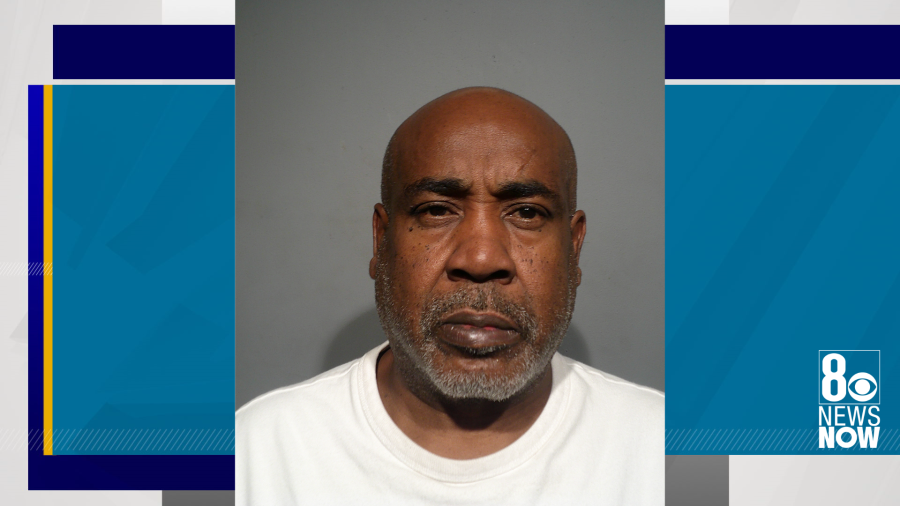Former detective talks who shot Tupac Shakur, murder case’s ties to The Notorious B.I.G.

- Oops!Something went wrong.Please try again later.
- Oops!Something went wrong.Please try again later.
- Oops!Something went wrong.Please try again later.
LAS VEGAS (KLAS) — A retired police detective who interviewed Duane “Keffe D” Davis as part of his investigation into the death of The Notorious B.I.G. said the known gangster’s arrest was a long time coming.
Las Vegas Metro police arrested Davis, 60, near his Henderson home early Friday morning. A grand jury, which met at least five times over the course of three months, voted Thursday to indict Davis on a charge of murder with a deadly weapon with a gang enhancement. Prosecutors announced the indictment Friday.
“What does this indictment mean for you?” 8 News Now Investigator David Charns asked retired Los Angeles Police Department detective Greg Kading.
“I’m so elated,” Kading said. “It’s so overdue.”

Shakur was shot on Sept. 7, 1996, at the intersection of Flamingo Road and Koval Lane, following a fight earlier in the night at the MGM Grand. In the hours before the murder, Shakur’s group reportedly attacked Orlando Anderson, a member of a rival gang and Davis’ nephew.
“When did ‘Keffe’ get on your radar?” Charns asked Kading.
“’Keffe D’ has always been a name associated with the case, just by the very nature of the fact that he’s the uncle of Orlando Anderson, who has always been the primary suspect in Tupac’s murder,” Kading said.
Anderson, who is dead, was sitting behind his uncle in the car with the shooter, Davis said in his book.
“Tupac made an erratic move and began to reach down beneath his seat,” Davis writes in the book. “It was the first and only time in my life that I could relate to the police command, ‘Keep your hands where I can see them.’ Instead, Pac pulled out a strap, and that’s when the fireworks started. One of my guys from the back seat grabbed the Glock and started bustin’ back.”
Last Friday, Metro police showed a diagram of the car Davis was in, showing Anderson and a third man, Deandre Smith, sitting in the backseat.
A South Side Crips gang affiliate testified to the grand jury that it was Smith, not Anderson, who killed Shakur. Smith is also deceased.
“I know this witness,” Kading said, “He’s just providing second-hand information on what he believes. But the best evidence is what ‘Keffe D’ himself provided, which is Orlando did the shooting.”
In court documents, witnesses said Davis, a longtime gang member, was a known drug trafficker. Kading’s dealings with Davis began as part of the Biggie Smalls murder investigation. The rapper’s unsolved murder happened six months before Tupac’s.
“We were essentially trying to figure out who killed Biggie Smalls to begin with and then as a result of that, we kind of transitioned over into Tupac’s case,” Kading said.
Kading was working to arrest Davis on drug trafficking charges in the mid-2000s, he said. As part of his investigation, he recorded Davis who told Kading what happened to Shakur.
Davis believed he had immunity, Kading said.
“He wasn’t going to just come in and tell the truth unless we compelled him to do that,” Kading said. “We had to give them a reason to tell the truth. Get some leverage on him so to speak.”
That leverage did not include protection from any public statements, Kading said. Those statements, made in TV documentaries and in his own writings, led to his arrest last week.
“It’s very frustrating,” Kading said about seeing Davis’ public statements. “First of all, it should bother all of us to see somebody publicly boasting about their involvement in a murder and apparently having no repercussions.”
The discrepancies between Davis’ account and what the gang member told the grand jury do not matter at this point, Kading said.

“The purpose of this grand jury is to indict ‘Keffe D,’” he said, “It doesn’t matter who ‘Keffe D’ hands the gun to.”
There is no statute of limitations for when prosecutors can file murder charges in Nevada. The charge can apply to those who aid or abet in a murder, not just the person accused of pulling the trigger, prosecutors said.
Davis was being held without bail and expected to appear in court Wednesday for his arraignment. A lawyer was not listed in his court docket.
For the latest news, weather, sports, and streaming video, head to KLAS.

